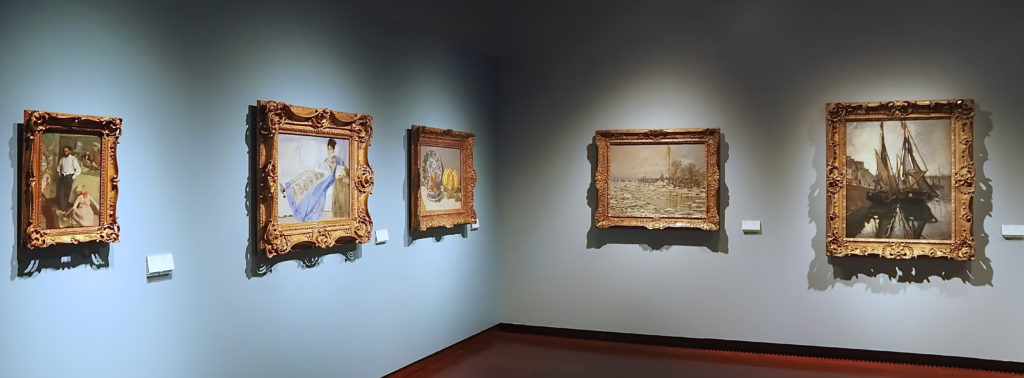Quick Hits
Daily brief research updates from the cognitive sciences

“Imagine you are a master thief doing a heist at an art museum,”. These were the instructions, that may sound strange, at the start of a scientific experiment. All harmless of course and something we can relate to with many an entertaining film about master thieves.
This was all part of setting the scene in a computer game to measure memory in a clever experiment conducted by Alyssa Sinclair and colleagues at Duke University. But, and this is crucial, the instructions given differed slightly and this is what led to different learning and recall outcomes.
The potential master thieves, study participants, 420 adults in all, were told that they were in the moment of the heist itself or, alternatively, that they were scouting out the museum for a future heist. The virtual museum was exactly the same with four coloured doors leading to four rooms with different collections of art with some picture and collections being more valuable than others.
And these two mindsets labeled a high-pressure mindset, needing to perform in the moment, and a curious mindset gave noticeably different outcomes when measured the following day.
The following day participants logged back in and were queried on their recall of the paintings and their values. They were presented with a whopping 175 pictures, 100 from the game and 75 additional ones, and asked to identify them and place the respective values to them.
Those who were in the scouting, curiosity, mode, the curiosity mindset were much better at identifying the correct pictures and assigning the correct values to them.
It seems that this lower-stress state allows for better mapping of the world and therefore better memory and recall. However, it’s not all bad for the high-pressure mindset. Though recall was lower, they were able to more effectively identify the highest value pieces and subsequently “won” on collecting the most stash.
This highlights what other research has pointed to, namely that high-pressure is good for value-based judgements in the moment. This is the proverbial scenario of escaping from the threatening bear – if you are faced with a bear, scouting the environment and remembering this, is not the best strategy and immediate value-based i.e. save my neck, judgement is needed.
It also does show that curiosity is effective for learning and needs to be in lower pressure situations. This in our adult lives can, however, be challenging, as it can be for many businesses. We are often moving constantly from one high-pressure situation to another and this can therefore impede learning and recall (not to mention leave us in a constant state of stress).
So the big outcome of this is that for learning and recall, curiosity is the best mindset – and this is something that is free and accessible to all of us.
Curious to learn more? I reported previously that curiosity could be an inborn trait and the newly discovered brain networks that drive curiosity.

Andy Habermacher
Andy is author of leading brains Review, Neuroleadership, and multiple other books. He has been intensively involved in writing and research into neuroleadership and is considered one of Europe’s leading experts. He is also a well-known public speaker, speaking on the brain and human behaviour.
Andy is also a masters athlete (middle distance running) and competes regularly at international competitions (and holds a few national records in his age category).
References
Alyssa H. Sinclair, Yuxi C. Wang, R. Alison Adcock.
Instructed motivational states bias reinforcement learning and memory formation.
Proceedings of the National Academy of Sciences, 2023; 120 (31)
DOI: 10.1073/pnas.2304881120
More Quick Hits
Coffee Makes Business Teams More Effective
Quick HitsDaily brief research updates from the cognitive sciences just couldn’t resist reviewing this piece of research, from a few years ago, after I stumbled across this (likely because some background algorithm had recommended it to me based...
Caffeine Makes You More Prone to Impulsive Buying
Quick HitsDaily brief research updates from the cognitive sciences fascinating piece of research just published shows that drinking coffee makes you more impulsive. That means you are likely to buy more, and more items you actually don’t need....
Healthy Brains Are Hotter Than You Think
Quick HitsDaily brief research updates from the cognitive sciences hen we get sick we get a fever and we all know what our body temperature should be: around 37°C. Too much above that and we have a fever, and too much below and we risk...
Unpredictable Parents Disrupt Brain Circuitry in Children
Quick HitsDaily brief research updates from the cognitive sciences ntuitively we all know that good parenting is essential to kids’ healthy development. We all agree on that. But as soon as we try to define what good parenting is we then enter into...
A New Study on Inter-Brain Synchronisation
Quick HitsDaily brief research updates from the cognitive sciences n case you didn’t know it brain synchronisation (or inter-brain synchronisation) is a thing. And a pretty cool thing. This happens when two, or more, people do similar things...
Unique Social Genes in Human Beings
Quick HitsDaily brief research updates from the cognitive sciences ne differentiating factor with human beings is our pro-sociality. This means we are a social species, and this sociality is seen in our ability to empathise, be socially tolerant,...






